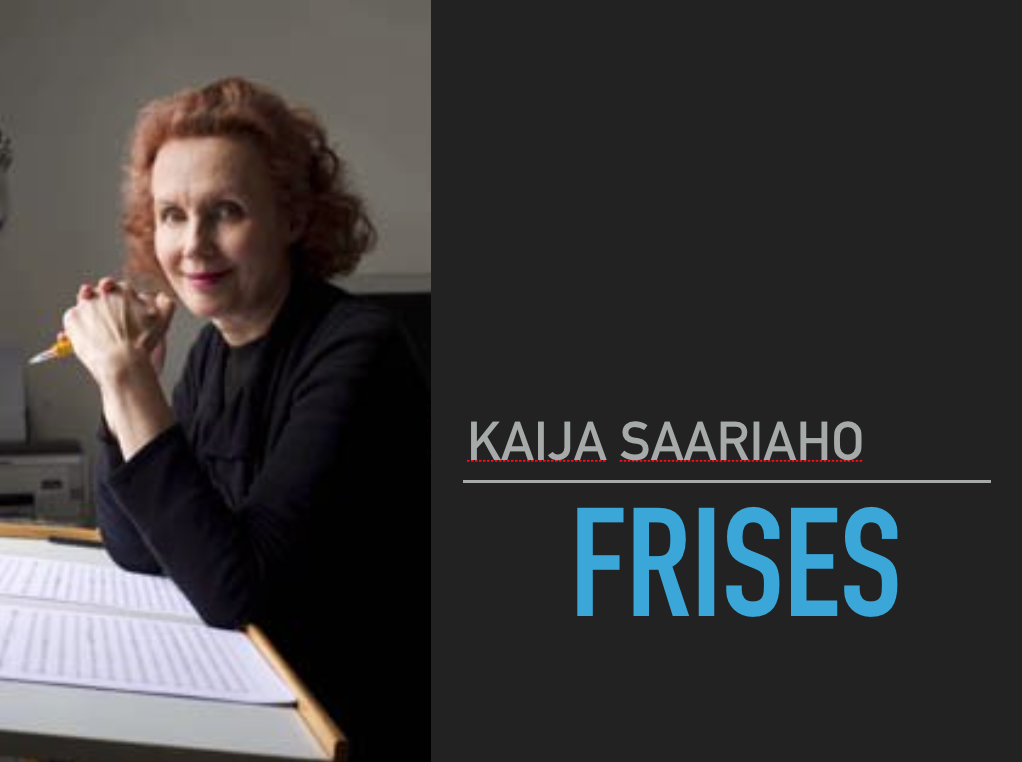frises
April 6, 2017, Gildenhorn Recital Hall, The Clarice
Works by Luise Adolpha Le Beau, Pauline Viardot-Garcia, Augusta Read Thomas,
Joan Tower, Kaija Saariaho, Amy Beach, and Missy Mazzoli.
Romanze, op. 35 - Luise Adolpha Le Beau (1850-1927)
Born in Germany, Luise Adolpha Le Beau, like many other female composers during the 19th century, began her career in music as a pianist and studied piano with Clara Schumann during the summer of 1873. In 1874 she beginning touring as a concert pianist but had to stop due to unstable health.
Le Beau began writing music when she was fifteen, and her compositions began to be performed in Europe in the 1880’s and even reached outside Europe later that decade, as far as Sydney and Constantinople. Her success led to her nomination for a chair position at the Royal School of Music in Berlin but, as it was never assigned to women, she was not granted the position.
In 1910 Le Beau wrote her autobiography, Memoirs of a Composer, a firsthand account of her experiences as a female composer and musician in the 19th century. Later in life she earned her living composing, teaching, performing, and writing music reviews for the newspaper in Baden-Baden. On July 17, 1927, Le Beau died at the age of 77 and, in her memory, the city of Baden-Baden named their music library after her.
Six Morceaux: III. Berceuse - Pauline Viardot-Garcia (1821-1910)
The prodigious Pauline Viardot-Garcia was born into a musical family and had an impressive career from a very early age. By the age of four she was fluent in four languages, at the age of twelve she was sought after as a composition student by Rossini, by fourteen she was performing solo voice recitals, and by fifteen she was encouraged to become a concert pianist by her teacher, Franz Liszt.
Viardot-Garcia had an especially successful career as an opera singer, making her formal debut in 1839 at the King’s Theatre in London in the role of Desdemona in Rossini’s Otello. In 1849 she appeared at the Paris Opera in Meyerbeer’s Le Prophete, a role which was written for her. In 1859 she was invited by Berlioz to sing in his revival of Gluck’s Orpheus, a role she performed 150 times. She had numerous composers write for her, including Brahms, Schumann, Saint-Saëns, and Fauré.
Viardot-Garcia’s Six Morceaux is a collection of six short character-pieces composed for violin and piano which the composer dedicated to the composer’s son, Paul.
Photo Credit: Anthony Barlich
Silent Moon (for violin and cello) (2006) - Augusta Read Thomas (b.1964)
Big Sky (2000) - Joan Tower (b.1938)
Tocar - Kaija Saariaho (b.1952)
Romance, op. 23 - Amy Beach (1867-1944)
Romance was dedicated to violinist Maud Powell for the Women’s Musical Congress in Chicago on July 5–7, 1893, during the World’s Columbian Exposition and was premiered on July 6 by Maud Powell accompanied by the composer on the piano. The premiere received positive reviews, and the audience was so enthusiastic after the performance that the piece had to be repeated. Powell thanked Beach for the “dainty, artistic edition” of the “charming Romanza,” which she had received the day before in a letter dated December 6, 1893. She wrote: “Our meeting in Chicago and the pleasure of playing together made a most delightful episode in my Summer’s experience. I trust it soon may be repeated.”









